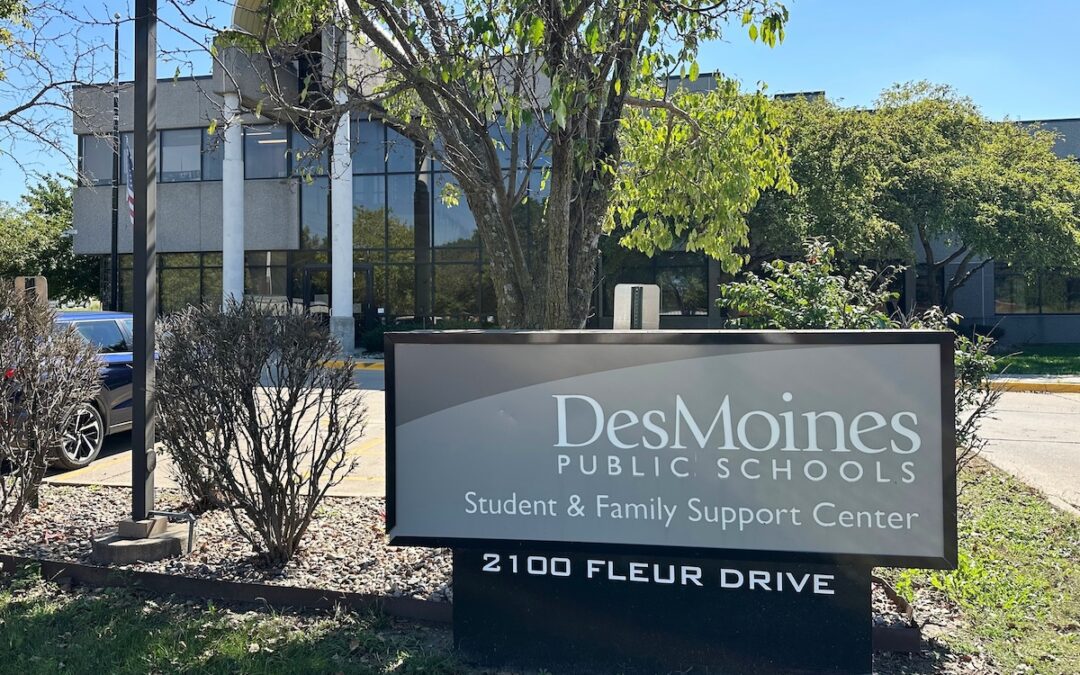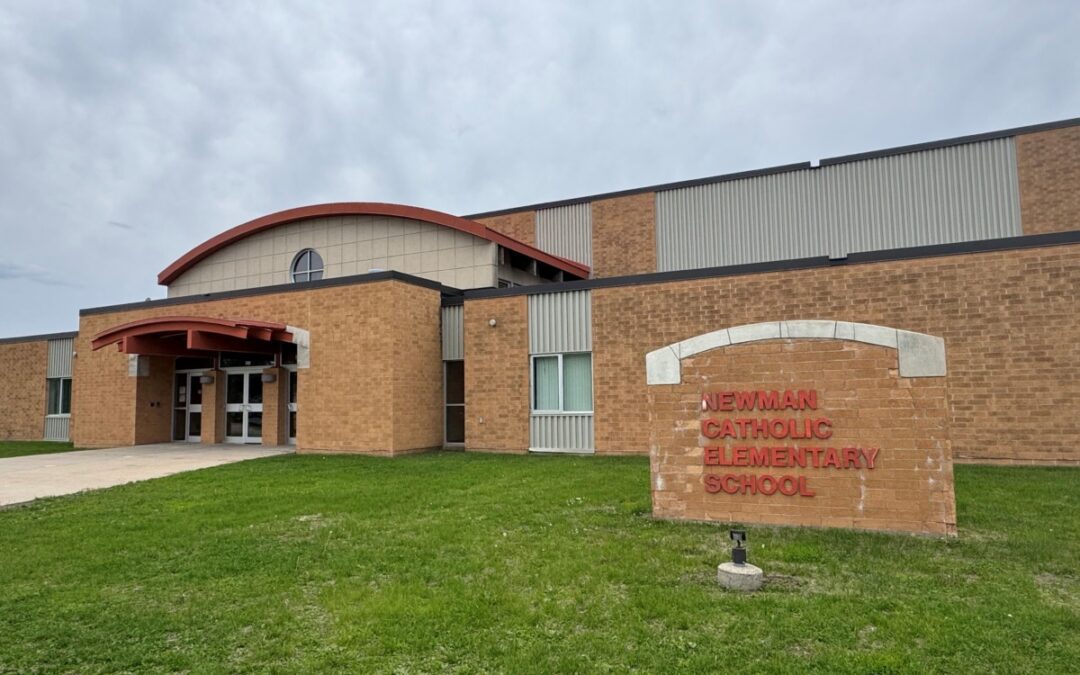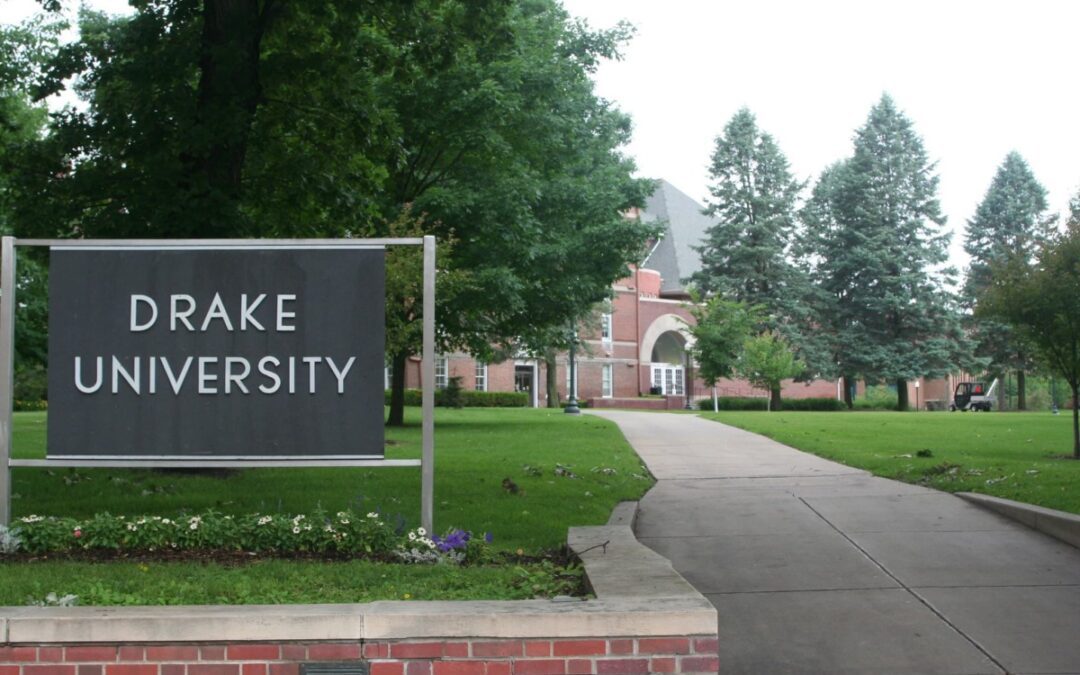
Photos by Ty Rushing/Starting Line
When Lilli Norris’ parents adopted her from China, they did not know that she couldn’t speak, that she had a bad heart, and that she was mostly deaf.
“The reason I tell you this is that Lilli was the first student at Carlisle Elementary to have a microphone introduced to us by Iowa AEA,” said Carrie Norris, Lilli’s mother, speaking of her local Iowa Area Education Agencies.
“Not only did they introduce the microphone to Lilli, they introduced it to all the teachers as well and year after year, AEA comes in and tells the teachers how to wear it, when to wear it, and what [Lilli] needs to at the beginning and end of every day,” she continued.
Stories like Lilli’s were shared in droves at the Iowa Capitol on Wednesday, as both the Iowa House and Iowa Senate held subcommittees on Gov. Kim Reynolds’ proposal to reshape—and effectively gut the effectiveness of—AEAs. The bills are filed under HSB 542 in the House and SSB 3073 in the Senate.
AEAs were formed in the 1970s to provide educational equity throughout Iowa via nine regional service providers. Under current law, Iowa school districts allocate state and federal special education dollars to AEAs—AEAs also have property tax levies— and in return, AEAs provide a wide array of services to districts. In addition to special education, services offered range from grief counseling following a school shooting—most recently in Perry—to providing early access services to infants and toddlers.
Lilli, a now 16-year-old freshman at Carlisle High School spoke to a standing-room-only crowd of lawmakers, educators, supporters, and detractors to share what the AEA means to her during the Iowa House subcommittee.
“My [individualized-education plan] was made when I was in first grade,” she said. “In first grade, AEA was helping me to read, talk, and hear what needed to learn.”
By the time Lili was in the fourth grade, her AEA audiologist started bringing a microphone to her school and training her teachers on how to use it so that Lilli could hear and understand what was happening in the classroom, a practice that continues to this day.
“AEA has given me the chance to learn,” Lilli said. “They have helped my teachers understand what I need. AEA helps teachers to become better teachers.”
Despite the impact of the AEA on students like Lilli, Reynolds argues that it is time for a change. During a rare press conference on Wednesday morning and before both chambers met to discuss her bill, Reynolds said she believes AEAs are doing a disservice to Iowa students who have special needs.
“As we look at the AEA system and how the system is currently serving the kids, the results are unacceptable and so we know we needed to realign the way that we are providing services for students with disabilities,” Reynolds said.
Her bill would force the agency to sell off properties, cut more than 200 jobs, remove the mandate that only AEAs provide special education services in Iowa, and place more oversight on the Iowa Department of Education, which falls directly under Reynolds’ purview.
The Iowa House wound up tabling the bill, but the Iowa Senate advanced it in a 2-1 vote with Sen. Lynn Evans (R-Aurelia), a former public school superintendent, vowing to add more amendments based on feedback he received at the Senate subcommittee.
At the beginning of the subcommittee, Evans dramatically threw the original version of the bill in a trash can and asked that people comment on an amended version of it that dropped late Monday evening.
Critics of the bill said the state should take more time to study making significant changes to the AEA—most people, including Republican legislators, only found out about the proposal during Reynolds’ Jan. 9 Condition of the State address.
Dave Daughton, a lobbyist for the Rural School Advocates of Iowa and the School Administrators of Iowa, said he represents more than 2,000 administrators and 170 school districts, and not one of them has expressed support for the bill.
“We’ve had a bunch of really good conversations about this—prior to that, there weren’t any,” Daughton said during the Senate subcommittee. “We need to continue those conversations, do what is needed, and really study the issue.
“A friend of mine has this quote … ‘Before you tear down a fence, you better make sure you know why it was built in the first place. AEAs were developed primarily for rural schools and I hope that you will not move this bill forward.”
Reynolds called the notion that this was moving too fast “ridiculous.”
“Businesses have to do this every day to survive,” she said. “We need to start operating government in that manner because, ultimately, that is how the kids are going to get a quality education, that is how we are going to be better, that is how we are going to be innovating—it’s who we are as Iowans.
“That should be thriving in our education system—it shouldn’t be set aside—we should be embracing and encouraging that type of innovation and just looking at how we can better at what we are doing.”

What we know about Ian Roberts, the Des Moines Superintendent arrested by ICE
The former Des Moines Public School superintendent’s arrest by ICE has garnered international attention and prompted a closer look at his...

Urbandale now 6th Iowa school district to protect trans and nonbinary students
Urbandale has joined five other Iowa school districts in voting to protect its transgender and nonbinary students. Following the removal of gender...

Iowa Board of Regents tries banning university courses that teach about social justice
The Iowa Legislature passed a bill this session banning diversity, equity, and inclusion programs and trainings by "public entities," including...

Critics warn of ‘money laundering’ as Iowa expands school voucher program
Iowans have a right to know how their taxpayer dollars are being used—but when it comes to the state's private school voucher program, that’s not...

Find your passion at Drake University summer camps
Discover your passion at Drake University's 2025 summer camps! From voice training to business innovation, find the perfect program for high...

University of Iowa ranks high in US News grad school rankings
The University of Iowa boasts 52 programs recognized by US News for excellence, with rankings in the top five, highlighting its diverse academic...





